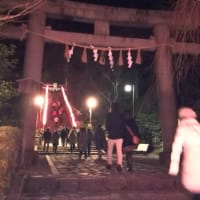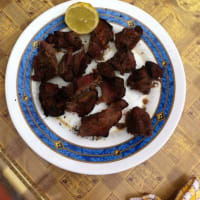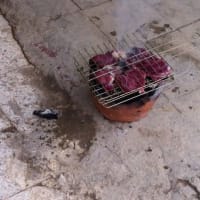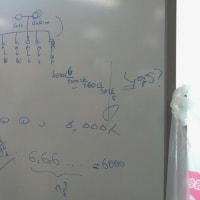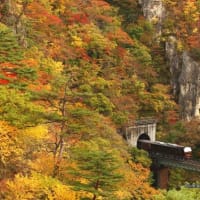
彼女と話をしていて、丁度その時読んでいた「21世紀とイスラーム その多様性と現代的課題」という 本の内容が浮かんだ。フェルガナ地方(中央アジア、旧ソ連邦)でのイスラム弾圧の話である。
厳しい弾圧が行われたという説明がその本には書いてあったが、どうも実像が浮かばない。明治に廃仏毀釈運動が起こったと言われるのと一緒である。
プロパガンダの無宗教の時間と聞いて、ああ、教育までその道具になっていたんだなと実感した。実際よくよく考えてみると、教育というのはその国の姿勢表明みたいなもので、どんな人間がその国にとって望ましいかがかなり窺える。与える自由度の高い方が政府としては成熟している。
で、翌日、本の内容をアップロードして彼女をタグ付けし、お礼の文面を付けた。そしたら日本語の文面が何を言っているのかと質問があった。ああ、そうか彼女は英語で授業を受け、論文を書いているんだった。で、まあエキサイトで出てきた適当な訳を英語ぽく直してFACE BOOKにコピペ。
In line with the principle of communism 'God does not exist', extremely severe atheist propagandas had been carried out in the central Asia since the late 1920s. Meanwhile the government conducted radically repressive policies toward Islamic tradition in order to destroy the remained feudal system in Fergana. Religious institutions such as mosques and madrasas were closed or destroyed. Moreover, almost all of intellectuals imparting Islamic knowledge were purged and terminated.
それに対しての彼女からの返信。
Yep, my great grandfather and his twin brother were islamic scholars and teachers, both spent most of their post-soviet life in jails and the twin brother died in jail for that simple reason... There were mandatory classes and even entrance exams in Atheism, teaching that everything can be explained by science and religions were made up for ruling the people and political reasons... Tough times for all believers... Not only muslims, also christians and jews...
ああ、厳しい弾圧の意味がようやく本当に理解できた。この地方に住む人々の間では、親類の誰かが無宗教運動のため強制収容所に入れられ亡くなっている。そのことが共通の民族の記憶にすらなっているのだろう。タジキスタン、ウズベクスタン、キルギス、トルクメニスタン等々、旧ソ連邦のイスラム圏の国々で同じように。また、そこに住むキリスト教徒やユダヤ教徒にとっても同じように。












